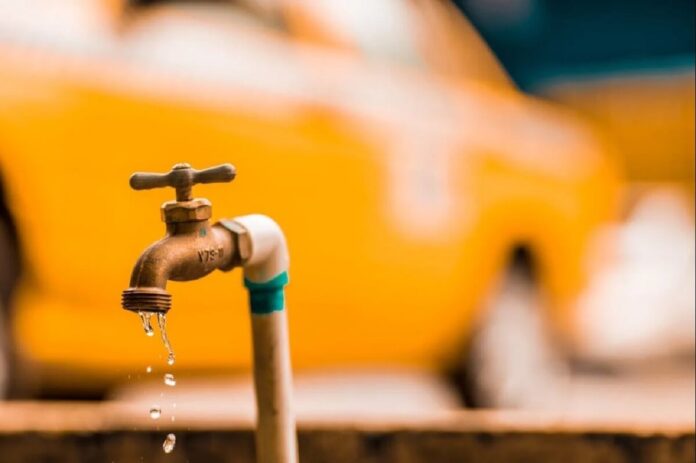Nestled in the peaceful landscapes of North Carolina, Camp Lejeune, a military base, unwittingly harbored a severe environmental disaster. For three decades, from 1953 to 1987, toxic substances contaminated the base’s water supply, affecting over a million people.
The revelation of these hazardous contaminants in the water supply sent shockwaves through the affected communities, leaving countless individuals to cope with enduring suffering and unanswered questions. In response to this environmental tragedy, organized litigation emerged as a glimmer of hope for seeking justice and accountability.
In this article, we will discuss the intricacies and challenges of the Camp Lejeune water contamination lawsuit journey, while shedding light on the legal complexities of the case.
Origins of the Lawsuit
The Camp Lejeune water contamination lawsuit traces its roots to the 1980s when initial reports of tainted water emerged. However, it wasn’t until the late 1990s that substantial evidence and testimonies from victims shed light on the extent of the environmental disaster.
These revelations prompted widespread public concern, media coverage, and the subsequent filing of legal actions against the responsible parties. As the scientific link between the toxic substances and the myriad health issues faced by victims became irrefutable, the demand for accountability grew stronger.
CLJA and Legal Representation
According to VA News, the Camp Lejeune Justice Act of 2022 (CLJA) marks a significant step towards justice and accountability for those affected by contaminated water. Section 804 of this law allows individuals who were exposed to toxic substances in the base’s water supply to pursue legal recourse through new lawsuits.
With this provision, CLJA facilitates legal representation for victims and their families, enabling them to seek compensation and resolution for the health issues and hardships endured due to prolonged exposure.
Legal representation plays a crucial role in the Camp Lejeune water contamination lawsuit. Experienced attorneys specializing in environmental and mass litigation law are essential advocates for the rights of victims.
According to TorHoerman Law, it is recommended to seek assistance from a reputable law firm with expertise in environmental litigation. With their support, victims can present their cases effectively and seek justice for the harm caused by the Camp Lejeune contamination.
Claim Filing and Organization
Claim filing and organization in the Camp Lejeune water contamination lawsuit involve meticulous attention to detail. Victims and their representatives must gather a comprehensive array of evidence to support their claims.
This includes medical records documenting health conditions linked to the contaminated water, proof of residence or employment during the designated period, and any additional relevant information that substantiates their case. Careful preparation is essential to ensure that each claim is well-documented and compelling, laying the groundwork for seeking rightful compensation and justice.
Navigating the Legal Process
Navigating the legal process in the Camp Lejeune water contamination lawsuit is a multifaceted endeavor. It entails engaging in various pre-trial procedures, such as discovery, depositions, and interrogatories. Legal representatives play a pivotal role in guiding victims through these stages, providing support, counsel, and expertise.
Forbes emphasizes that legal representatives are crucial as they possess specialized expertise in the law and its application to your specific circumstances. Moreover, they will strategize and present compelling arguments before the court, seeking a just resolution. The legal journey demands perseverance, diligence, and a strong commitment to achieving justice for those affected by the environmental catastrophe.
Challenges and Delays
The path to justice in the Camp Lejeune water contamination lawsuit is not without obstacles. As reported by Bloomberg Law News, despite the government’s commitment to compensate veterans affected by toxic waters at Camp Lejeune, the process has experienced significant delays.
Nearly nine months have passed, and not a single claim has been settled. The Navy cites the need to establish an online portal to efficiently manage the claims as the reason for the hold-up.
Challenges arise due to the sheer volume of claims and the intricacies of dealing with multiple parties involved. Delays can occur due to legal arguments, bureaucratic processes, and court schedules.
Towards a Just Resolution
Despite the hurdles, the pursuit of justice in the Camp Lejeune water contamination lawsuit remains unwavering. Victims and their legal representatives are optimistic about achieving an efficient and equitable resolution.
Through collective efforts, they strive to secure accountability, compensation, and closure for those who suffered the consequences of environmental negligence. As the organized litigation progresses, the hope for a just outcome and fair compensation for those impacted by the Camp Lejeune water contamination remains steadfast.
Ending Note
The Camp Lejeune water contamination lawsuit represents a significant phase in the pursuit of justice and responsibility for environmental calamities. The origins of the lawsuit exemplify the determination and resilience of impacted communities in seeking answers and redress. The implementation of the Camp Lejeune Justice Act offered a ray of hope, granting legal options to victims and their families.
Read Also: What Should I Ask Before Hiring a Personal Injury Lawyer?
Nevertheless, the journey to justice has faced obstacles and delays, highlighting the intricacies of organized litigation in such extensive cases. However, the dedication of victims and their legal representatives underscores the significance of collaborative endeavors in seeking a fair resolution and closure for those enduring the ramifications of the contamination.





